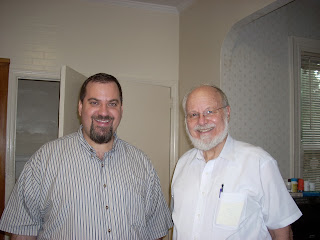When faith is proven wrong, faith redoubles
In the New York Times a couple of days ago, Paul Krugman writes:
“Back in the 1950s three social psychologists joined a cult that was predicting the imminent end of the world. Their purpose was to observe the cultists’ response when the world did not, in fact, end on schedule. What they discovered, and described in their classic book, “When Prophecy Fails,” is that the irrefutable failure of a prophecy does not cause true believers — people who have committed themselves to a belief both emotionally and by their life choices — to reconsider. On the contrary, they become even more fervent, and proselytize even harder.”
The rest of his column is about the “fiscal cliff”. But the part above is relevant to every eschatological prediction in Judaism. There have been many dates when Mashiach was predicted to arrive. When he didn’t, Jews just figured that hadn’t been worthy and believed in the next date, be it 5. 15, or 150 years in the future, and that the geulah would occur then.
That 1950′s study is ever more relevant, however, to false messiahs, of whom there have been many. When Shabbatai Zvi converted to Islam, many, many followers convinced themselves that it was just the next stage in a journey before he declared himself mashiach and led the Jews to redemption. Sabbetianism continued for another hundred years or so, long enough for the Vilna Gaon’s to express vociferous opposition to Chassidut when he felt it smacked of the still extant Sabbetianism.
More recently, when the Lubavitcher Rebbe died, (and no, I am not comparing the Lubavitcher Rebbe to Shabbetai Zvi, except in how the failure of his messiahship affected his followers), huge numbers of his followers shifted their beliefs to make him a Jesus-like figure and believe that he would come back from the dead. They still believe it.
There is a remarkable universalism of the experience of true believers when faced with facts that contradict their established beliefs, a kind of cognitive dissonance. Most Charedim face this daily, and go into denial over facts that don’t fit their worldview. In this age of science and reason, as well as a wider and more pervasive reach of empirical facts due to the internet, that denial is forced to become more and more overt.

Comments
Post a Comment